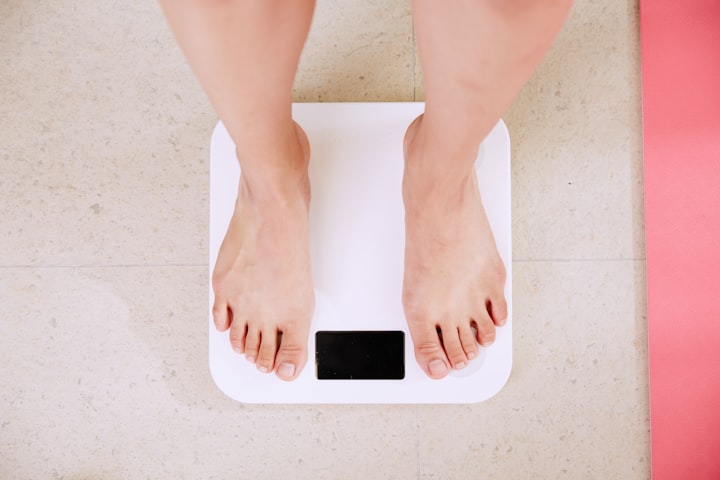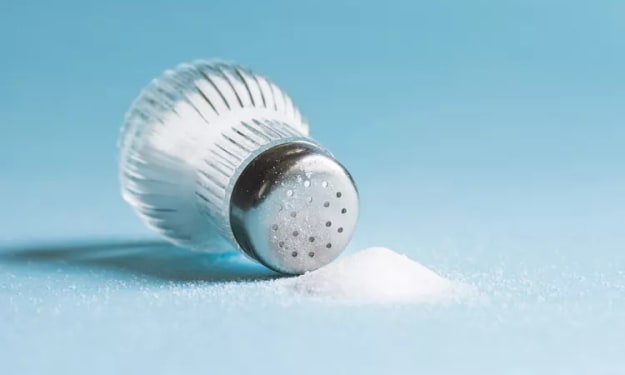Weight Loss – 13 Mistakes You Should Avoid Making
Don't make these weight loss mistakes

You eat less, you exercise better. Then why aren’t you losing weight? Trying different weight-loss methods can always seem like a confusing and unattainable target that ends up taking second place to ‘more important’ stuff.
Unfortunately, there are countless misconceptions and false understandings brought on by the media that make it challenging for those trying to lose weight safely and sustainably.
We will all learn to quit making weight control an unnecessarily challenging chore with these common drawbacks in our weight management etiquette.
1. Only Focusing on The Scale Weight
It’s very normal for patients to feel like they’re not losing weight quickly enough, even though they are following their diet diligently.
However, on the scale, it is just one calculation out of several of the weight gain. Weight can be affected by several factors, including fluid concentrations and how much food is left to absorb in the body.

A lot of times, people can eat a lot of food and drink a lot of liquids at any given time, as well as many other factors, and that can cause a person to gain or lose weight.
Also, elevated hormone levels and other hormonal shifts in women may contribute to greater water retention, which is expressed in scale weight. If the number on the scale isn’t moving, you may very well be losing fat mass but hanging on to water.
Luckily, you can do some things to lose water weight. Additionally, if you’ve been working out, you may be adding muscle and losing fat.
If you are born with PCOS, your clothes can start feeling looser around the waist, even though you are maintaining sufficient physical strength.
Seeing how much fat you’re losing by testing your waist by measuring your waist with tape or with pictures you take every month will show that you’re actually losing fat, even though the scale number does not change much.
Many variables may influence scale weight, including fluid variability, muscle mass gain, and the weight of undigested food. You could be losing body fat even though the scale reading doesn’t change much.
2. Eating Too Many or Too Few Calories
To lose a large amount of weight, you need to consume more calories than you eat. A caloric deficit must be in place.
In the past, it was assumed that to lose 1 lb of weight, a person needed to reduce their daily caloric intake by 3,500 calories. However, recent research shows the calorie deficit required varies from person to person.
You can feel as though you’re not eating very many calories. But in fact, most of us have a tendency to underestimate and underreport what we eat.
In a two-week study, 10 obese people reported consuming 1,000 calories per day. Lab testing showed they were actually taking in about 2,000 calories per day.
You may be consuming too many foods that are healthy but also high in calories, such as nuts and cheese. Watching portion sizes is key.
On the other side, often attempting to reduce calorie intake too much may be dangerous and counterproductive.
Studies have shown that diets that are too low in calories can make life very difficult for people. When it comes to their diets, people who don’t limit their food consumption too-much have difficulty maintaining a healthy weight.
On the other hand, diets that are too low in calories can probably lead to weight loss, but there is a risk that the food will not give the body the fuel it needs to work properly.
3. Not Exercising or Exercising Too Much
During weight loss, you eventually lose some muscle mass as well as fat, but the sum depends on many factors. If you don’t exercise at all when limiting calories, you’re likely to lose more muscle mass and experience a drop in metabolic rate.
By comparison, exercise can reduce the amount of lean mass you lose, improve fat loss and keep your metabolism from slowing down.
The more lean mass you have, the easier it is to lose weight and sustain the weight loss. However, over-exercising can also cause problems.
Studies have shown excess exercise to be unsustainable in the long term for most people. Furthermore, it can inhibit the development of adrenal hormones that control the stress response.
However, lifting large amounts of weight and doing cardiovascular exercises multiple days a week is an easy, sustainable approach to maintain cardiovascular health with weight loss.
Because of dieting, lack of exercise, and/or poor lifestyle decisions, muscle mass, and metabolism can be lost. Muscle mass may be acquired by increasing the amount of exercise one does, or it may be retained by proper diet and lifestyle.
4. Choosing Low-Fat or “Diet” Foods
Although processed foods with low fat like corn chips and biscuits tend to help you lose weight, they do so at the expense of eating extra calories.

Any of these energy and soda products may have extra sugar in them to make them taste better.
For example, one cup (245 grams) of low-fat, flavored, fruit-flavored yogurt can contain a whopping 47 grams (about 12 teaspoons) of sugar (as opposed to keeping you whole, low-fat products are likely to make you hungrier, so you end up eating even more.
Keep those unhealthy oils, or “diet” foods, in mind, but instead aim higher – to salads, grilled chicken, maybe?
“Diet” foods are usually high in sugar and instead of being nutritious can lead to further appetite and a greater calorie intake.
5. Eating Too Often, Even If You’re Not Hungry
This suggestion is simply to chase down snack after snack to stop hunger or even decrease the body’s metabolism, which has been a constant feature in our culture for many years.
From a medical standpoint, excess calorie intake can lead to weight gain. Additionally, this can lead to weight loss depending on the appropriate lifestyle changes.
In one study, blood sugar levels and hunger decreased while metabolic rate and feelings of fullness improved in men who consumed 3 meals versus 14 meals within a 36-hour time span.
The advice to eat breakfast every morning, regardless of appetite, also tends to be misguided. One study found when people missed breakfast, they took in more calories at lunch than when they’d eaten a morning meal.
However, they consumed an average of 408 fewer calories for the day overall. Eating when you’re hungry and only when you’re hungry seems to be key to successful weight loss.
A starving person (being one who gets so hungry that he/she has no appetite) will most often make bad food decisions. It is easier to eat a snack than become ravenously hungry, which will often lead you to make poor food decisions.
The trick to good weight loss is to eat a diet that is minimal enough. For the best results, one can only eat when one is hungry.
6. Not Being Aware of What You Eat or Drink.
Consuming a more balanced diet can result in improved health. Yet, regardless, you will be gaining weight due to the calories that you are going to be ingesting.
Not only are you not having the right amount of protein, fiber, carbs, and fat that your body needs, you’re not even getting them at the right time.
Studies show discussing what you consume during the day will help provide you with a better understanding of the number of calories and nutrients you consume during the day.
It also helps prevent you from cheating. Most of the popular online activities (like blogs and apps) allow you to enter your activity into the activity tracker as well.
You may be ingesting fewer proteins and more carbohydrates than you were previously expecting.
7. Still Drinking Sugar
Many adults restrict their consumption of beverages that contain high levels of sugar, like soft drinks, and it is a very good idea to do this.
However, drinking fruit juice cannot be healthy for you.
Even 100% fruit juice can contribute to sugar-sweetened drinks. It’s important to keep fruit juice to a minimum to avoid health issues, such as tooth decay.

An example would be that one 12 ounces (320 gram) cup of unsweetened apple juice contains 36 grams of sugar. It is more than twice as high, or more, as in 12 ounces of cola.
That is to say, liquid calories don’t seem to affect the appetite centers in the brain the same way calories from solid foods do.
Studies suggest that in order “to compensate for the liquid calories “you consume in a sugary drink, but then you take in more calories in total, than if you didn’t have the sugary drink".
If you cut out sugar-sweetened drinks but continue to drink fruit juice, you’re still getting a lot of sugar, and are likely to take in more calories overall.
8. Not Reading Labels
Failure to read the label carefully is one of the reasons why people will eat extra calories and unsafe ingredients.
Unfortunately, several food items are branded with safe sounding food promises on the front of the box. This can give you a false sense of security about buying the item.
To get to the most important details about weight management, you can look at the ingredients list and nutrition facts label, which are on the back of the packaging bin.
9. Falling into a Fixed Routine.
Unfortunately, you can not do the same thing every day and expect the same outcome you previously achieved.
Jogging, for example, is a great aerobic exercise, but jogging the same path over and over is increasingly fatiguing and less successful over time, particularly if you’ve been trying to lose weight as well.
Think about it: your body has practiced its specific routine several times, so it’s only normal that your muscles and cardiovascular system have become proficient at your workout for this specific exercise routine.
So, to see consistent results, it’s important to change your workout routine every few weeks. Even if you don’t necessarily change your workout routine, you can try to increase the intensity.
While walking or jogging, pick up the pace for one minute every five minutes.
10. Ignoring weights
You’ve got one to burn! Muscle secrets how much muscle mass takes up room and burns calories as well as how many calories are expended daily by the body from the two key methods of exercising: cardio and strength training.

With cardio, it’s more about burning calories, and with strength training, this is easy to see. Lifting weights can certainly result in the expenditure of more calories than that of just cardio, but strength training can also have a lot of health benefits to the body besides calorie burning. Even if you aren’t even out to try getting in the best shape of your life or back that skinny pre-chemo figure back.
11. Cutting Out Entire Food Groups
Many common fad diets encourage people to cut out whole food groups, such as dairy, grains, or meat. The issue with these plans is they are too restrictive and may cause people to get bored or lose motivation, and even give in to unhealthy cravings.
Plus, removing major food groups may contribute to certain nutritional shortages, such as not enough fiber, protein, or calcium. Unless you have an actual food allergy, be wary of meal plans that require you to skip essential food groups.
12. Being Too Restrictive
Some people believe that the extreme calorie deficit would mean quicker results, but that is not necessarily the case.
A study published in the journal Psychosomatic Medicine found that people who went on a serious calorie deficit didn’t lose weight in the long-term, even if they lost weight in the short-term.
Since the body was generating so much cortisol, the body stores extra fat in the abdomen. The body keeps releasing cortisol, and the body keeps retaining fat. Not a good thing.
“When you’re not eating enough calories for your body to run efficiently, your metabolism slows down, and you aren’t able to function as well as you normally would, not to mention you might be more likely to binge eat without considering how the foods may affect your health,”
White says. “When you always feel deprived on a diet, you’re more likely to overconsume a variety of unhealthy foods, which may lead to gaining weight and feeling unhealthy,”
White says. “We recommend nothing more than 1,200 calories a day, especially for women,” White says. “Also, if a diet is too strict or restrictive, you’re not able to maintain it long-term.
Furthermore, when you always are hungry or desperately always feeling deprived, you’re more likely to binge or overeat unhealthy foods.”
13. Eating Too Much After a Workout
A daily workout routine is a vital part of any weight-loss program, but it doesn’t give you a license to indulge on whatever you like after you stop.
Yes, working out torches calories, but people also drastically overestimate exactly how many calories they just burned (fitness trackers and cardio equipment calorie counters tend to be wildly inaccurate).
Many who wish to reward themselves with a post-workout drink or protein shake can overdo it, even with apparently “healthy” post-workout snacks as protein shakes. To avoid being dehydrated, it is best to use these post-workout snacks after a long workout.
Disclaimer: This article is originally being published by me here on this platform.
About the Creator
Richard Appiah
I am a blogger and digital marketing expert. I love animals, reading, writing, and a big fan of soccer.
I also write for MEDIUM






Comments
There are no comments for this story
Be the first to respond and start the conversation.